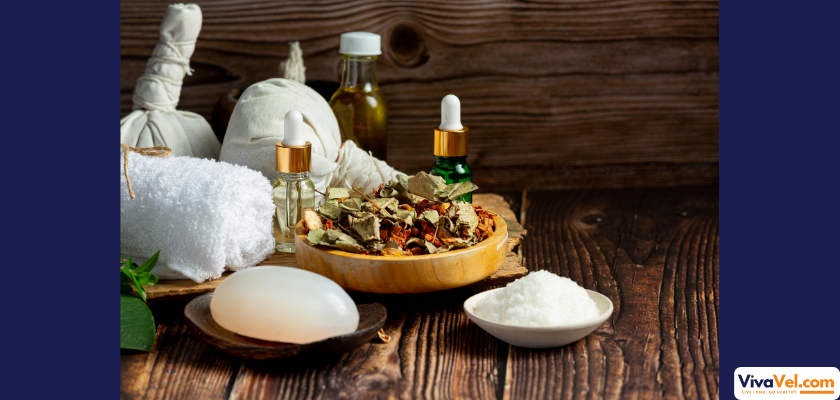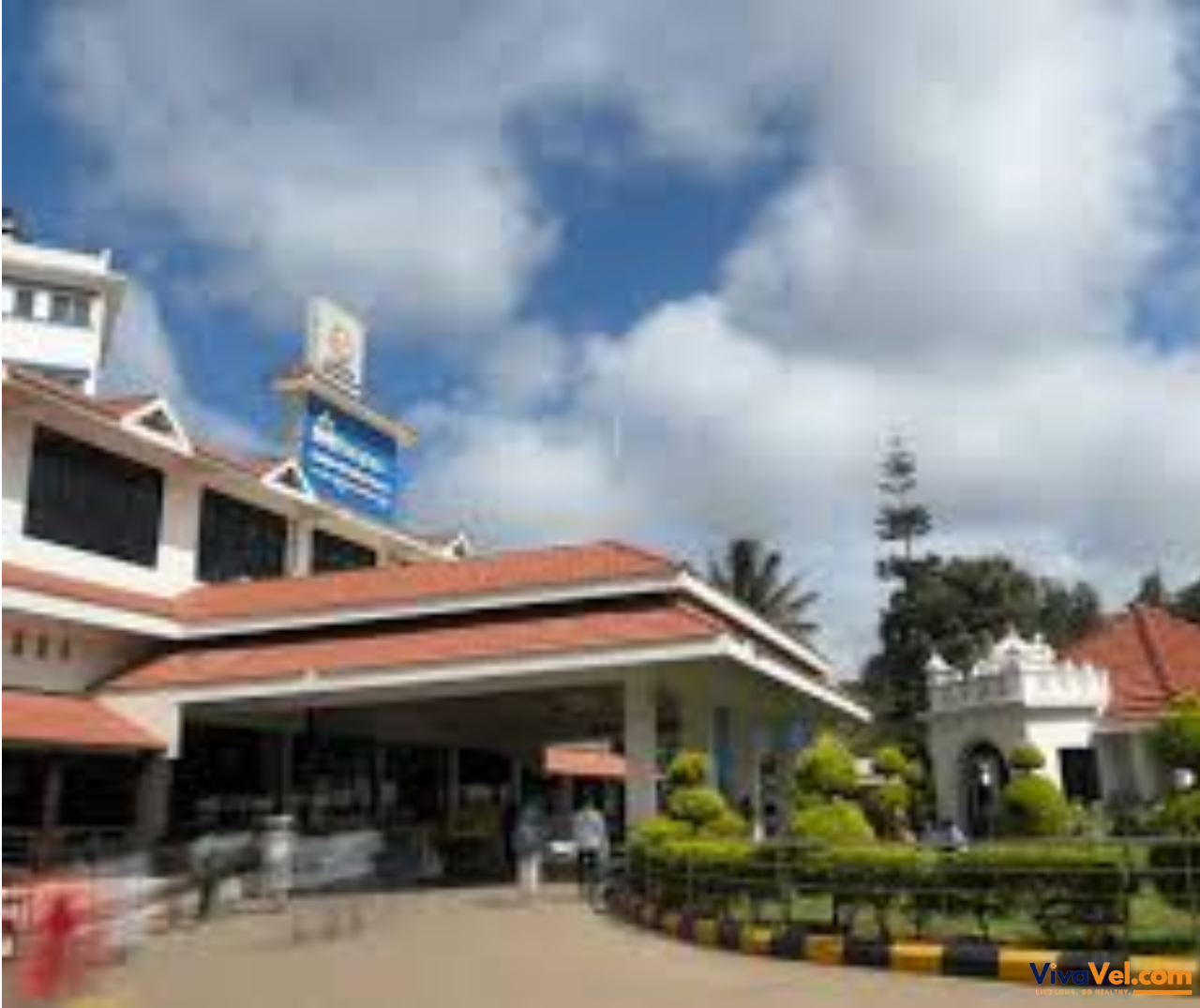info@vivavel.com
+919818262686
+919818262686
 info@vivavel.com
info@vivavel.com +919818262686
+919818262686Kshara Karma is a unique Ayurvedic para-surgical procedure used for treating piles (haemorrhoids), fistula-in-ano, fissures, and other anorectal disorders. It involves applying a special alkaline herbal preparation (Kshara) to the affected tissue to dissolve, cauterize, and promote healing without the need for major surgery. This minimally invasive therapy is a safe, effective, and time-tested Ayurvedic alternative to conventional surgical methods like open hemorrhoidectomy or fistulotomy.
India, known as the birthplace of Ayurveda, offers advanced Kshara Karma treatments by certified Ayurvedic surgeons in modern facilities that combine traditional wisdom with modern hygiene standards. Through VivaVel Health, patients receive holistic guidance, expert treatment, and complete medical tourism support from consultations to post-procedure care.
 Signs & Symptoms Suggesting the Need for Kshara Karma
Signs & Symptoms Suggesting the Need for Kshara Karma
 You may require Kshara Karma if you experience:
You may require Kshara Karma if you experience:
Pain, swelling, or burning in the anal area.
Bleeding during or after bowel movements.
Itching or discharge around the anus.
Lump or swelling near the anal opening.
Difficulty passing stool or a feeling of incomplete evacuation.
Foul-smelling discharge or pus (common in fistula).
Recurrence of symptoms after prior surgery or medication.

 Kshara Karma may be recommended for individuals suffering from:
Kshara Karma may be recommended for individuals suffering from:
Piles (Haemorrhoids): Swollen veins in the anal canal causing bleeding, itching, or pain.
Anal Fissures: Small tears in the lining of the anus, causing severe pain or burning.
Fistula-in-Ano: An abnormal tunnel between the anal canal and outer skin due to chronic infection.
Rectal Polyps or Warts: Small growths near the anal region.
Sinus or Abscesses: Localised infection near the anus.
Non-healing wounds or ulcers in the anal region.
 Consult an Ayurvedic surgeon or proctologist if:
Consult an Ayurvedic surgeon or proctologist if:
You have persistent anal pain, itching, or bleeding.
Symptoms worsen despite home remedies or medication.
There's recurrent pus discharge, abscess, or swelling near the anus.
You've been diagnosed with piles, fistula, or fissure requiring surgical management.
You prefer a minimally invasive Ayurvedic alternative to conventional surgery.
 Before Kshara Karma, the Ayurvedic doctor or surgeon may suggest:
Before Kshara Karma, the Ayurvedic doctor or surgeon may suggest:
Proctoscopic or rectal examination: to assess the site and severity of the condition.
Blood tests: to rule out infection or anaemia.
Fistulogram (if needed): for fistula tract mapping.
Ultrasound or MRI (complex cases): to identify internal extensions.
 Do's:
Do's:
Follow prescribed Ayurvedic medicines for healing.
Eat a fibre-rich diet and drink plenty of water.
Use warm water sitz baths daily for comfort.
Maintain good anal hygiene.
Avoid constipation and straining during bowel movements.
 Don'ts:
Don'ts:
Avoid spicy, fried, or oily foods for at least 2 weeks.
Refrain from sitting for long hours.
Don't skip medications or follow-up visits.
Avoid heavy lifting or vigorous exercise for at least one week.
 Recovery & Outlook
Recovery & Outlook
Pain relief: Within 2–3 days
Complete healing: Within 2–3 weeks
Minimal bleeding and discomfort compared to open surgery.
No hospital admission required.
Recurrence rate: Very low if post-care and lifestyle advice are followed.
 Kshara Karma is known for:
Kshara Karma is known for:
Short recovery time
High success rate (85–95%) for early-stage piles and fistula
Minimal scarring and recurrence
 Why Choose VivaVel Health for Kshara Karma in India?
Why Choose VivaVel Health for Kshara Karma in India?
At VivaVel Health, we connect international patients with India's top Ayurvedic surgeons and hospitals, offering authentic Kshara Karma treatments in a hygienic, modern setting.
Certified Ayurvedic Surgeons: trained in Kshara Karma and advanced anorectal care.
Top Ayurveda Hospitals & Clinics: NABH-certified with modern infrastructure.
Affordable Packages: transparent pricing, no hidden costs.
End-to-End Assistance: visa, travel, accommodation, translators, and post-procedure care.
Holistic Healing Approach: combining Ayurveda, diet, and lifestyle for long-term relief.
Disclaimer:
Our medical content authors have diligently gathered and synthesized information on this topic to offer valuable insights to our readers. Drawing from a range of reputable medical journals and health resources, this content aims to enhance understanding of the subject. It's essential to remember that while this information is informative, it should not replace personalized consultation or treatment from a qualified healthcare professional. For further details, please refer to our Editorial Policy.
For this topic, our authors used some of the following resources:
National Institutes of Health (.gov) | Management of internal haemorrhoids by Kshara karma
Journal of Ayurveda Medical Sciences | Review on Kshara Karma in Streeroga
.png)
Saba holds a Master’s degree in Pharmacy from Jamia Hamdard University, New Delhi and possesses a deep understanding of medical subjects. She is an experienced teacher and is passionate about health education. She has a remarkable talent for transforming complex medical concepts into engaging, accurate, and impactful content to inspire healthier living. With a deep scientific understanding and thorough research, Saba consistently supports her writings with the latest publications, ensuring accuracy and relevance.
.png)
Oruge is committed to promoting health awareness through clear, research-based communication. With a background in microbiology and public health, she combines scientific accuracy with an engaging writing style to simplify complex medical topics. At VivaVel Health, she contributes insightful reviews, articles, and blogs that empower readers to make informed decisions for healthier living.




![]() Narayana Hrudayalaya Health City No. 258/A, Bommasandra Industrial Area, Anekal Taluk, Bangalore – 560099, Karnataka, India
Narayana Hrudayalaya Health City No. 258/A, Bommasandra Industrial Area, Anekal Taluk, Bangalore – 560099, Karnataka, India

Treatment Plan & Cost within 2 days
